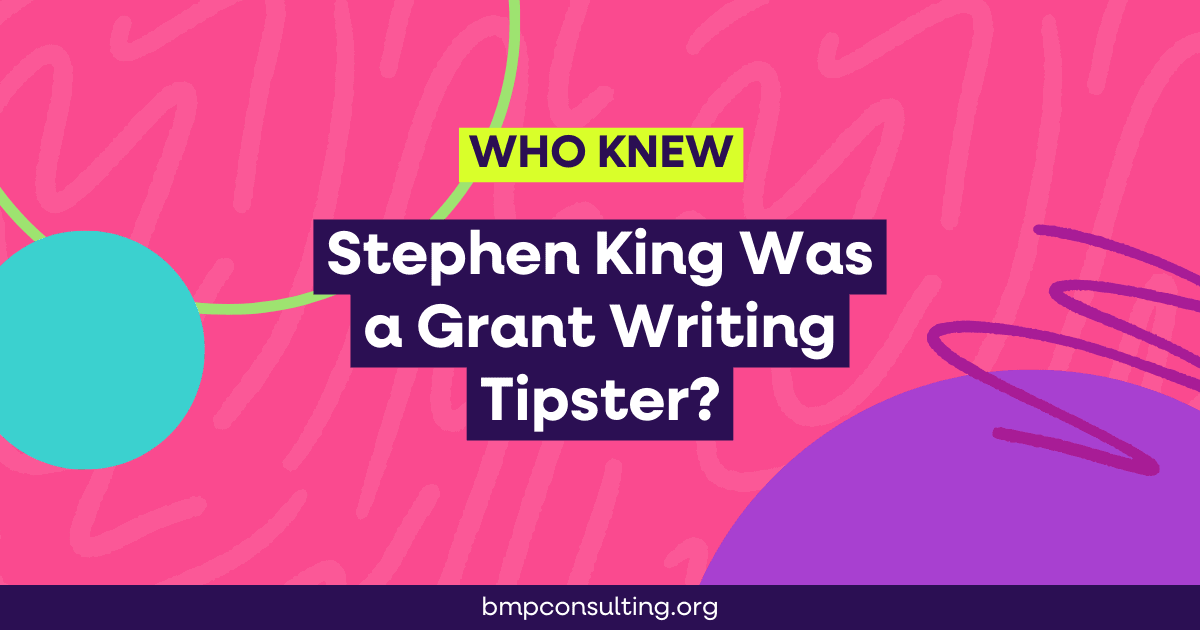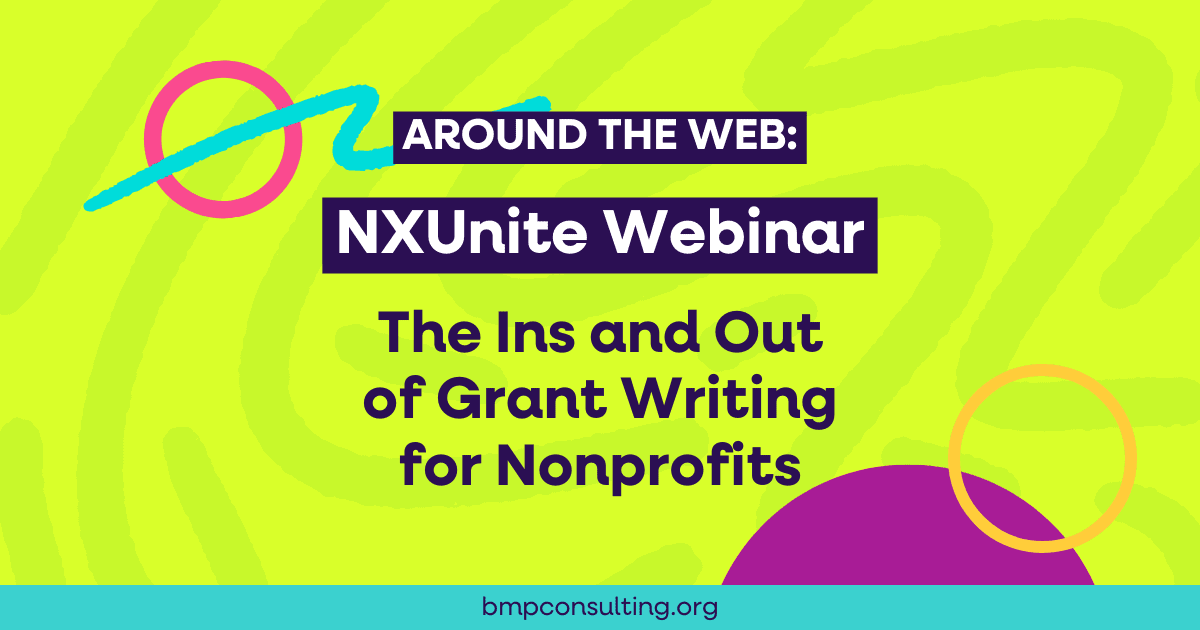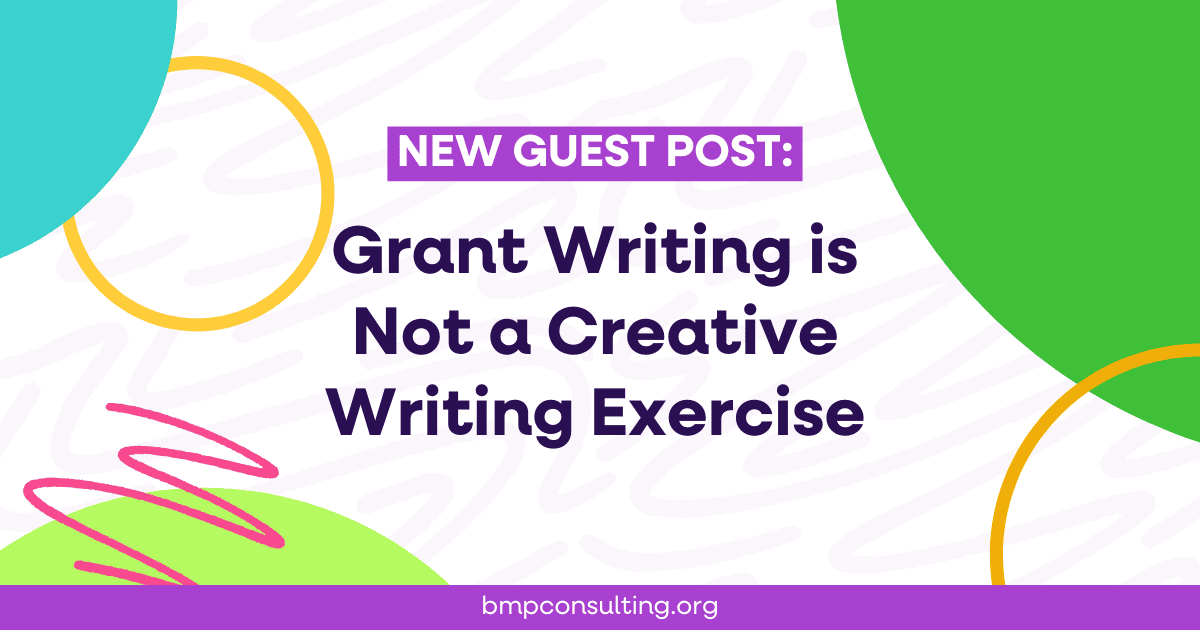I belong to a book club of fellow grant professionals because we are book nerds, and I love it. We read for entertainment, camaraderie, and in-depth discussions on a variety of topics. Every month we rotate through the roster, and each member makes a book selection. In 2017, one of our members selected On Writing by Stephen King, and I called foul, not because I dislike King, but because I read for fun and distraction. Yes, learning is always a byproduct, but I did not want my book club to turn into a “learn about grants and writing” book club. (Not that that’s a bad thing, but again, I’m in it for the friendship and good stories.)
But since I’m a good little rule follower (a great grant manager trait), I downloaded the book to my kindle and started reading. If you can believe it, I finished the sucker in two days and highlighted half the book. I loved what I learned so much I created a workshop surrounding tips from Stephen King and how they can be applied to grant proposal writing. I presented the topic in November at the 2018 Grant Professionals Association Annual Conference in Chicago.
Here are a few of the highlights.
(1) “If you want to be a writer, you must do two things above all others: read a lot and write a lot.”
What a true story. The best way to earn your proficiency as a grant proposal writer is to write one. And write another. And do that 50 more times. Practice makes perfect, or as near to perfect as a grant proposal can be. And if you want to step up your game, you should be a grant peer reviewer. Reading the work of others, both the good and the bad teaches you what works and what does not.
(2) “I want to suggest that to write to your best abilities, it behooves you to construct your own toolbox and then build up enough muscle so you can carry it with you. Then, instead of looking at a hard job and getting discouraged, you will perhaps seize the correct tool and get immediately to work.”
This means continued professional development, training, and learning from your past work. Grant writing requires the ability to conduct research, engage with subject matter experts, build budgets, explain community needs, and so much more. No matter how long you’ve been in the field, you need to continuously add to your toolbox to stay at the forefront of your career.
(3) “One of the really bad things you can do to your writing is to dress up the vocabulary, looking or long words because you’re maybe a little bit ashamed of your short ones. This is like dressing up a household pet in evening clothes. The pet is embarrassed and the person who committed this act of premeditated cuteness should be even more embarrassed. Remember that the basic rule of vocabulary is to use the first word that comes to your mind if it is appropriate and colorful. If you hesitate and cogitate, you will come up with another word – of course, you will, there’s always another word – but it probably won’t be as good as your first one, or as close to what you really mean.”
I wish I had read this when I first started in the field. If you stopped by my desk during the first year or two of my foray into the grant profession you would find a thesaurus at my desk, because I wanted to sound enlightened. Truthfully, grant reviewers do not like breaking out a dictionary every third word to understand what you are talking about. Be like Stephen King and go with the simple words that get your point across.
(4) “You’ll want grammar on the top shelf of your toolbox, and don’t annoy me with your moans of exasperation or your cries that you don’t understand grammar, you never did understand grammar, you flunked that whole semester in Sophomore English, writing is fun but grammar sucks the big one.”
You want your grant reviewer to read your proposal for content, not as your English teacher correcting your grammar, spelling, and other mistakes. The best way to do that is to get it right. If grammar is not your strong suit, I suggest you take a class and find a good editor.
(5) “You can read anywhere, almost, but when it comes to writing, library carrels, park benches, and rented flats should be courts of last resort – Truman Capote said he did his best work in motel rooms, but he is an exception; most of us do our best in a place of our own. Until you get one, you’ll find your new resolution to write a lot harder to take seriously.”
Finding the right space at work can be difficult, even in your own office. I have found that to do my best work I need a door to shut so I can cut out noises, visits from coworkers looking to chat, and any other unnecessary interruption. When you are on a roll, you do not want to lose your train of thought because of an ill-timed visit from your cubemate looking to talk about last night’s Bachelor season finale. (True story, because we all have our guilty pleasures.)
This is just a hint of the great advice shared by author Stephen King. If you want to learn more, I suggest you grab your own copy of On Writing and get to reading. To make it even more pleasurable, read it with a friend and discuss it. There’s nothing better than sharing a good book with a fellow book nerd, trust me.
And on that note, I’ll leave you with this final Stephen King quote. He wrote, “Writing is magic, as much the water of life as any other creative art. The water is free. So drink. Drink and be filled up.”



